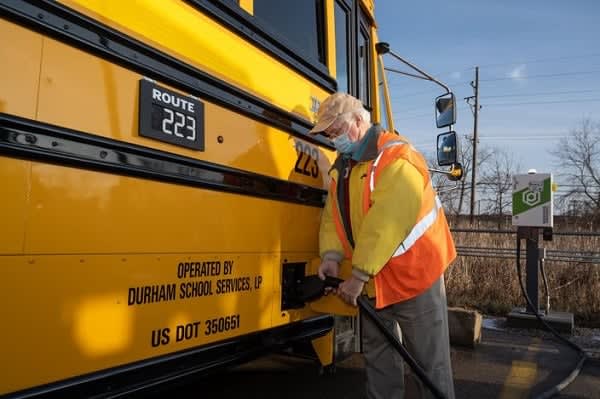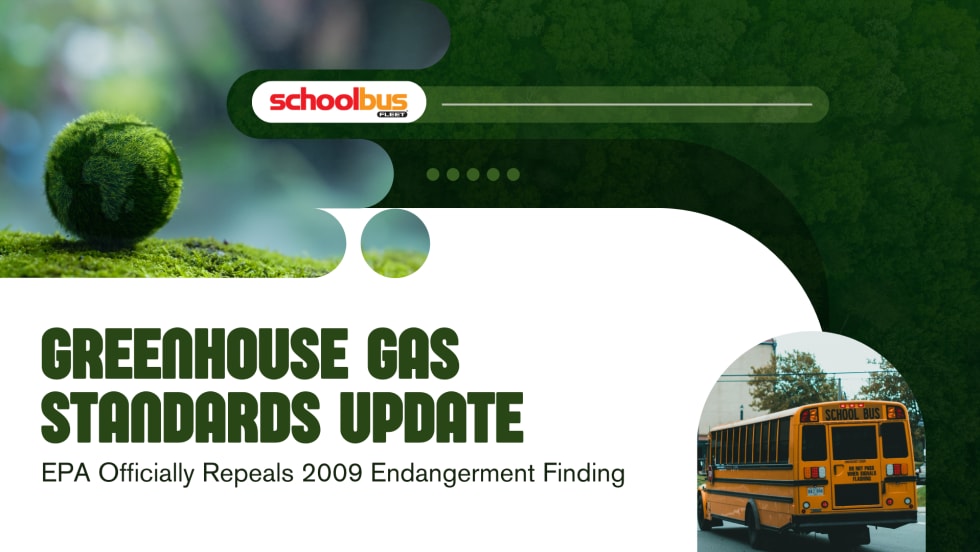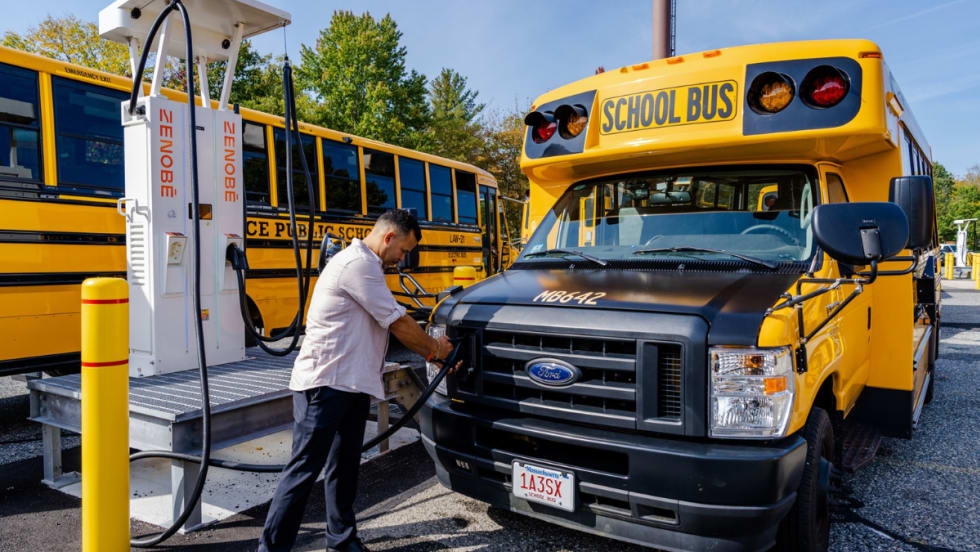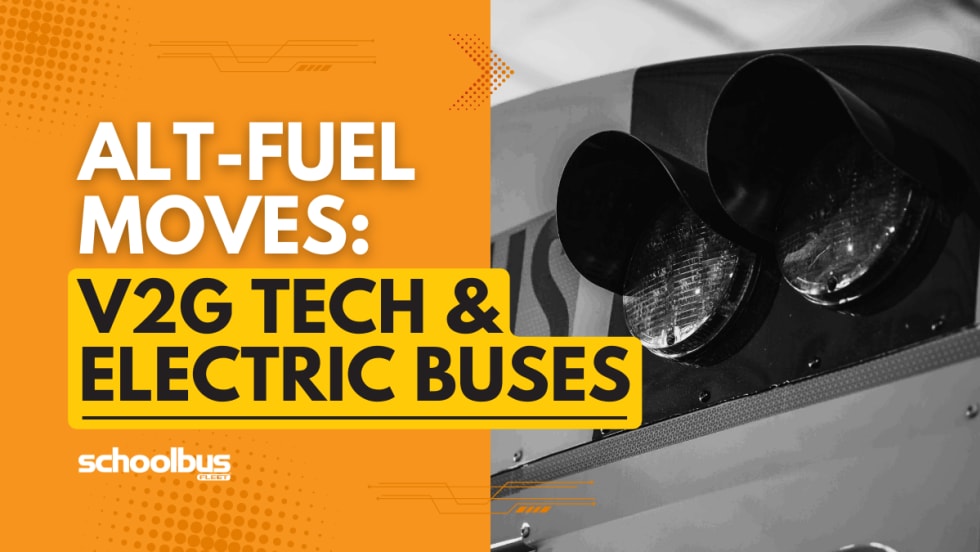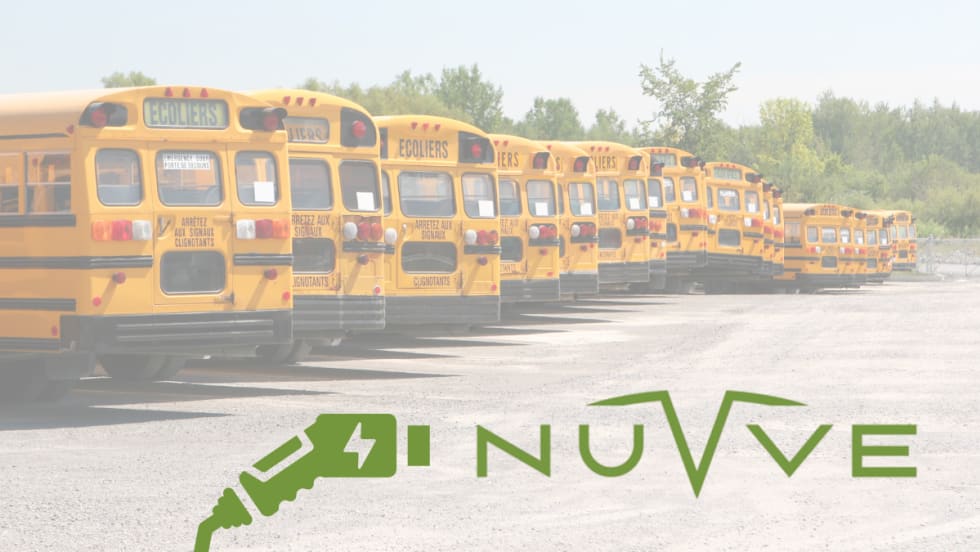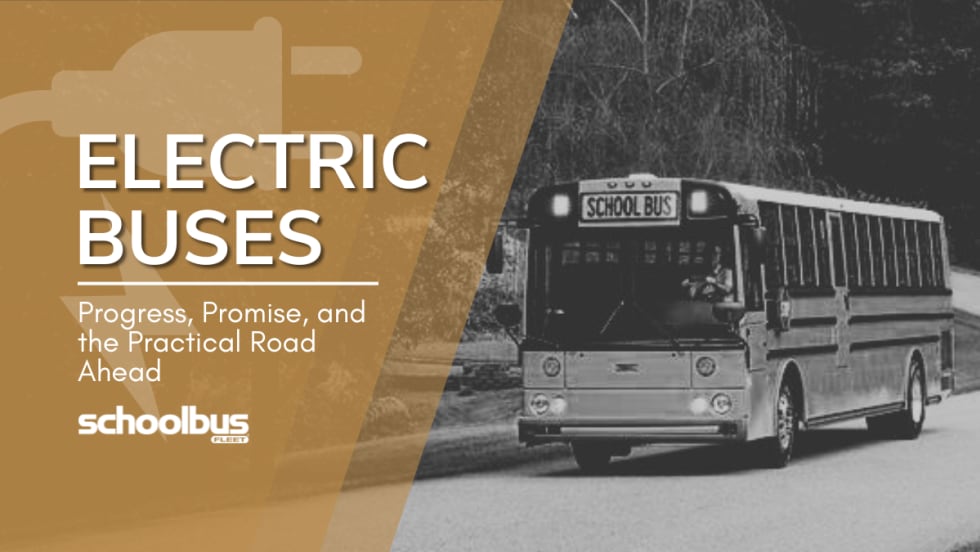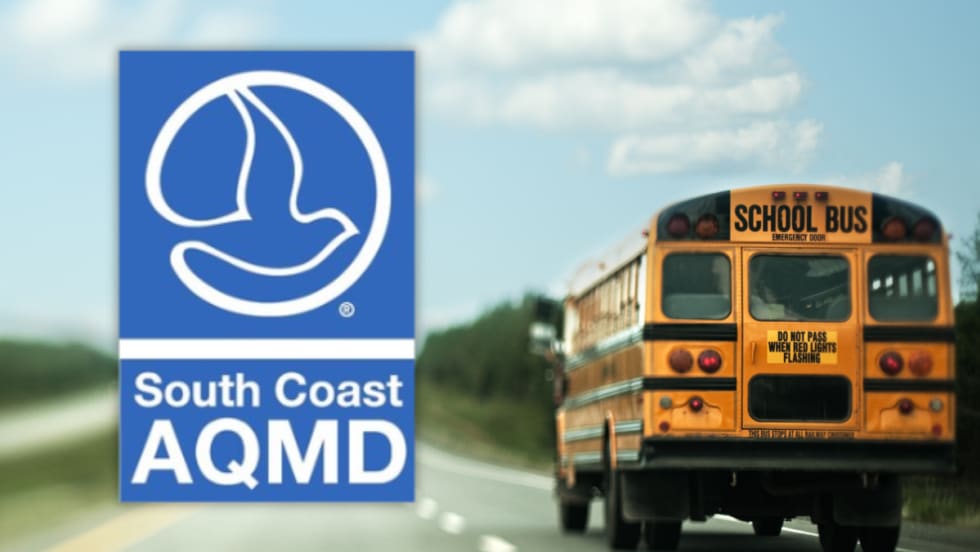With some schools still closed due to the COVID-19 pandemic, Ann Arbor Public Schools and Roseville Community Schools have partnered with DTE Energy to deploy six new electric school buses to deliver meals to students, in addition to providing transportation service.
As School Bus Fleet previously reported in June 2019, DTE Energy secured $1.5 million in state funding to purchase a total of six Thomas Built Saf-T-Liner C2 Jouley electric school buses, powered by Proterra, for the two school districts, in addition to charging infrastructure and a vehicle-to-grid (V2G) study. The funding was received from the Michigan Department of Environment, Great Lakes, and Energy (EGLE) as part of the state’s $13 million Volkswagen (VW) funds allocated toward new electric and diesel school buses.
Trevor Lauer, president and chief operating officer for DTE Electric, said in a news release that the power company’s role in deploying the electric buses is another proof point of DTE’s clean energy plan.
“From renewable energy deployment to our Charging Forward program offering incentives on electric vehicle chargers, our goal is to continue to lead locally and nationally on combating climate change," he added. "We appreciate the Ann Arbor and Roseville school districts as well as our state and business partners for working with us to further these goals.”
DTE Energy plans to achieve net zero carbon emissions by 2050 while continuing to provide safe, reliable, and affordable power to its customers, according to the energy company. The Saf-T-Liner C2 Jouley electric school buses are reportedly expected to save nearly 490 tons of greenhouse gas emissions over their lifetime, and provide more than 40% in savings on fuel and maintenance costs.
While Ann Arbor Public Schools will continue virtual learning due to the pandemic, DTE Energy said the district’s school buses remain a critical component of its online learning program by transporting meals to 22 distribution locations throughout the district. (The district currently contracts its school buses with Durham School Services, Madeline Keller, a communications associate for DTE Energy, told School Bus Fleet).
“The addition of zero-emission buses to the [Ann Arbor Public Schools] fleet allows this district a new opportunity to highlight clean energy solutions to the community,” said Dr. Jeanice K. Swift, the district’s superintendent, in the news release. “The versatility of these buses will enable [Ann Arbor Public Schools] to continue to deliver over 9,000 meals to students, twice a week, many whom qualify for free or reduced lunch in the Ann Arbor public school district.”
Meanwhile, Roseville Community Schools has already started using its electric school buses to deliver meals to students during the virtual learning period. This month, however, the district's zero-emission buses will be deployed with a new purpose — transporting students to school.
“From runs to and from school each day, to delivering food to families during this pandemic, to giving our auto tech students a chance to see the future of transportation up close, these buses will help to ensure we are serving the school community in whatever ways are needed,” said Mark Blaszkowski, superintendent of Roseville Community Schools, in the news release.
Both Ann Arbor Public Schools and Roseville Community Schools, in partnership with DTE Energy and local bus dealer Hoekstra Transportation, will participate in a five-year pilot program for the electric buses and the associated charging infrastructure from Proterra.
Additionally, DTE Energy announced that it would initiate a V2G study in tandem with the program to understand the effects of energy efficiency and the capabilities of each electric bus.The results of the study, according to the company, will reportedly be used to develop programs that further benefit the school districts based on the electric buses' capabilities.



